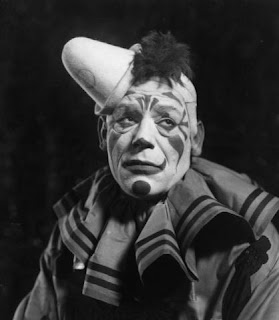Extraordinary Discourse 109
A Cocktail Party Of Gurus, Pundits, Poets And Hecklers
"This is the city… and I am one of the citizens;
Whatever interests the rest interests me… politics, churches, newspapers, schools
Benevolent societies, improvements, banks, tariffs, steamships…"
Whitman’s Specimen Days, which he described as “the most wayward, spontaneous, fragmentary book ever printed,” is a moving scrapbook of clippings and jottings from the whole span of his life, including his years as a volunteer nurse in Union hospitals. While conceding that “the real war will never get into the books,” in Specimen Days Whitman tried to get at what he called the “interior history” of the war. Unlike more conventional scrapbookers with their impersonal digests of clippings from the distant battlefront, Whitman (who famously boasted, “I am large. I contain multitudes”) wrote himself into the proceedings.
...
A hyperactive cutter and paster, Emily Dickinson also repurposed scraps and clippings for original creative work, shifting—like Whitman, or perhaps like ambitious Facebook compilers today—from consumer to producer. Late in life, she wrote dazzling fragments of verse and prose on discarded envelopes, chocolate wrappers, and stray bits clipped from magazines and newspapers. These scraps functioned as something more than convenient notepads, encouraging spur-of-the-moment poetic spontaneity and the creative challenge of fitting stray thoughts to odd shapes of paper.
,,,
One can see in such forays a foretaste of what Joseph Cornell (a huge Dickinson fan) did with scissored detritus from magazines repurposed for aesthetic ends, some dazzling examples of which—along with many Max Ernst works that inspired them—are currently on display at an exhibition devoted to Surrealist drawing at the Morgan Library. Here, we have crossed the bridge from merely culling information from newspapers to making clippings the very basis of art. The show is a reminder that many artists have “drawn with scissors,” and that Photoshop, in our own image-drunk culture, gives new meaning to Max Ernst’s remark that “It is not the glue that makes the collage.”
...
Mark Twain was perhaps the king of American scrapbook culture. According to the OED, he was the first writer to use “scrapbook” as a verb, writing in 1881 about the origins of his book A Tramp Abroad, “I scrap-booked these reports during several months.”
...
...the pleasingly serendipitous and fragmented feel of life on the road. “Anyone may compose a scrapbook, and offer it to the public with nothing like Mark Twain’s good-fortune,” as his friend William Dean Howells wryly observed. “Everything seems to depend upon the nature of the scraps, after all.”
Scrapbook Nation
Christopher Benfey
New York Review Of Books



Comments
Post a Comment